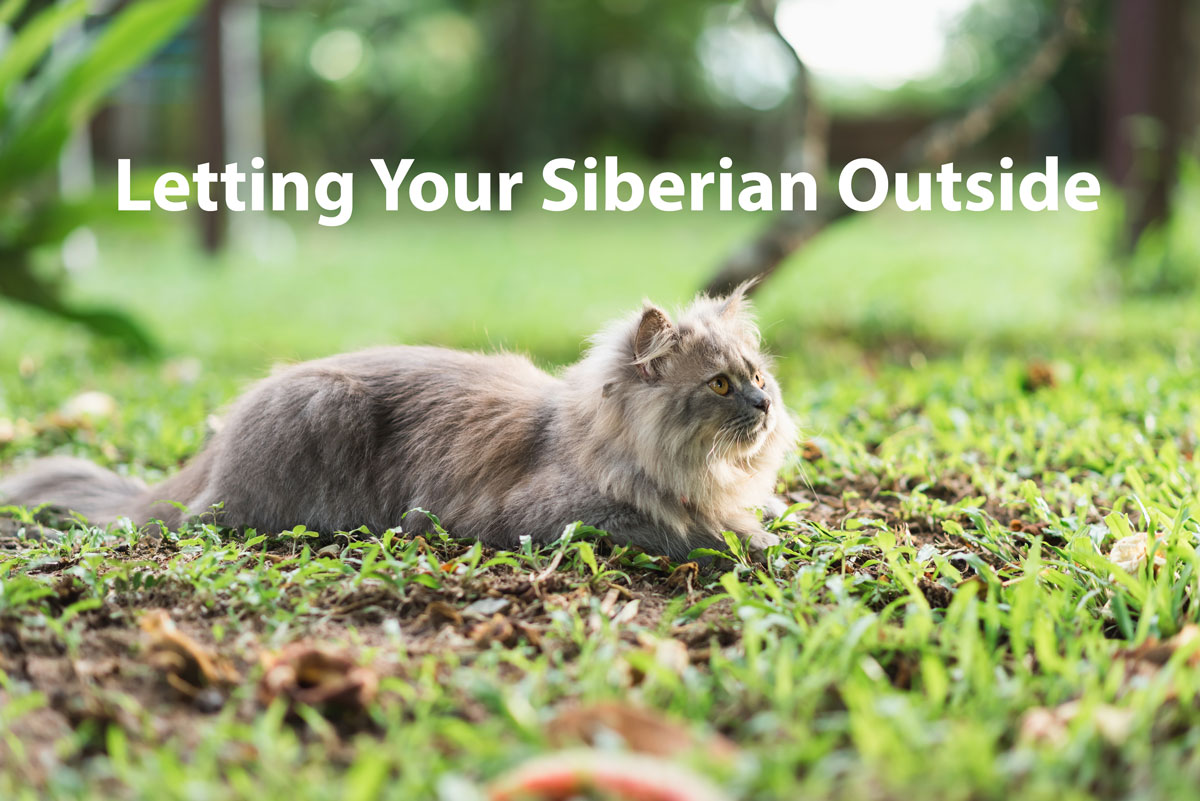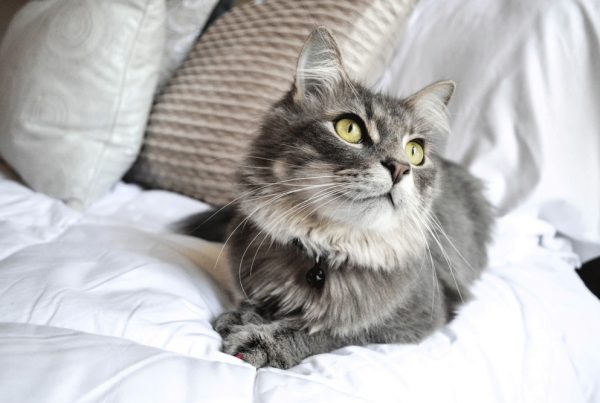
It’s true that Siberian cats were domesticated not long ago compared to other breeds, which may explain their natural inclination for the outdoors. You may feel a bit guilty at times not letting your Siberian out; perhaps you think it might offer them better exercise, stave away boredom, or give them some piece of the adventures their ancestors had when they scoured the Siberian wilderness. Whatever the well-intended reason might be, you may want to consider all the potential downsides of letting your Siberian roam outside.
Indoor Cats Live Longer
Regardless of why this may be, statistic show indoor cats live longer than outdoor ones. A purely indoor cat can live up to 17 or more years, while a purely outdoor cat may only live 2-5 years on average. This doesn’t take into account for hybrid indoor/outdoor cats, but it showcases how impactful letting your cat out regularly can be.
Potential Diseases
Feral cats and other wild animals that your Siberian might come in contact with carry diseases. Some of which include:
- Feline Leukemia
- Feline AIDS
- Feline Infectious Peritonitis
- Feline distemper
- Upper Respiratory Infections
Potential Parasites
Although not always deadly, parasites can cause unpleasant symptoms in your cat in the form of scratching, skin infections, vomiting and diarrhea. Parasites can also spread around your home and to humans, and can be very difficult to get rid of.
- Fleas
- Ticks
- Ear Mites
- Intestinal Worms
- Ringworm (fungal infection)
Safety Hazards
The world is full of dangers for an outdoor cat. Remember, if your Siberian is inside most of the time, they may not understand to be fearful of certain things.
Cars:
Most cats do not understand the dangers of streets and cars. Even if you do let your cat outside, keep them away from roads, period.
Animal Cruelty:
Unfortunately there are people that do not share your affinity for cats, and some have been known to use animals are target practice for BB guns or slingshots, or hit your cat at close range. Being naturally social and with all the love and care your Siberian receives from you, she may not understand not all people are friendly and to stay away from them.
Getting Trapped:
Your Siberian’s natural curiosity can work against her when she gets trapped in a shed, garage, basement or any other structure. The great outdoors is not a familiar environment to your cat, and they may not comprehend their limitations.
Wild Animals:
You may like to think that your Siberian is a fierce hunter, but the reality is there are a lot of wild animals that would love to have her as a snack. Be mindful of foxes, coyotes, raccoons, and stray dogs.
Poisoning:
There are many outdoor poisons your cat could come in contact with, and plenty of man-made ones as well. Be wary of rat poison as it might be hidden in areas you don’t see, but your cat can find. Antifreeze is a common pet killer; it tastes pleasant but is highly toxic.
Someone Might want to Steal Your Siberian
Nearly two million pets are stolen each year, and purebreds are the most targeted group. No kidding. If a not so virtuous person recognizes your cat as a Siberian they may see them for their monetary value or want to keep them as their own. Even worse, only about 10% of stolen pets are returned home. Don’t let those be your odds.
Consider the Environment
Believe it or not, stray and outdoor cats have a massive impact on the environment in the small animals they prey on and kill. Millions of birds are killed each year by outdoor cats, and that’s only 20% of wildlife cats kill.
If You Do Take Your Cat Outside
- Keep other cats (particularly strays) away from your cat.
- Train your Siberian to accept a cat/dog harness so you can keep them on a leash and restrict how far they can wander.
- Keep your Siberian up to date on their vet visits for vaccines and parasite screening.
- Make sure your Siberian has a microchip implant, that way if they wander off or get lost you can still locate or identify them.
- The best case scenario is to supervise your Siberian while they’re outside.




